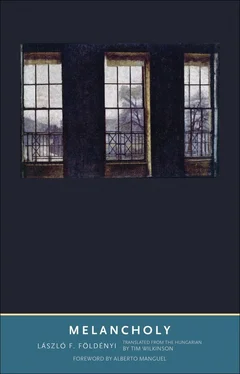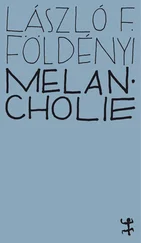“After the eternal act of self-revelation,” he begins his discourse,
everything in the world is, as we see it now, rule, order and form; but anarchy still lies in the ground, as if it could break through once again, and nowhere does it appear as if order and form were what is original but rather as if initial anarchy had been brought to order. This is the incomprehensible base of reality in things, the indivisible remainder, that which with the greatest exertion cannot be resolved in understanding but rather remains eternally in the ground. The understanding is born in the genuine sense from that which is without understanding. Without this preceding darkness creatures have no reality.
(Schelling, Philosophical Inquiries into the Essence of Human Freedom , 29)
The essence of man, according to Schelling, is the yearning and aspiration to get out of that darkness into luminosity, but rootedness in the dark also belongs to that essence. For that reason, the root of evil is not lack, privation, or defect, as the early Church Fathers or the scholastics believed: “For the simple reflection that only man, the most complete of all visible creatures, is capable of evil, shows already that the ground of evil could not in any way lie in lack or deprivation. . The ground of evil must lie, therefore, not only in something generally positive but rather in that which is most positive in what nature contains” (36–37). Picking up an argument by Franz von Baader that is in much the same spirit, he continues: “If one asks from whence comes evil, the answer is: from the ideal nature of creatures to the extent that it depends on the eternal truths that are contained in the divine understanding, but not on the will of God” (36). Therefore, “we deny that finitude for itself is evil” (38). The finite, animal, physical part of man is held to be the root of evil by those who find freedom exclusively in intelligence and accordingly deny the freedom inherent in evil. “As it is, however, in no way the intelligent or light principle in itself that is active in the good but rather this principle connected to selfhood, that is, having been raised to spirit, then, in the very same way, evil does not follow from the principle of finitude for itself but rather from the selfish or dark principle having been brought into intimacy with the centrum; and, just as there is an enthusiasm for the good, there is a spiritedness [
Begeisterung
] of evil” (39–40). Schelling explains this boundless, Romantic tolerance as follows: “God as spirit. . is the purest love: there can never be a will to evil in love just as little as in the ideal principle. But God himself requires a ground so that he can exist; but only a ground that is not outside but inside him and has in itself a nature which, although belonging to him, is yet also different from him” (42). Evil is comprehensible from this doubly committed nature: “For evil is surely nothing other than the primal ground [
Urgrund
] of existence to the extent that this ground strives toward actuality in created beings and therefore is in fact only
the higher potency of the ground active in nature” (44). The ultimate cause of evil is nature as understood in the nonempirical sense, which, as a foundation, contains the divine essence, but not as a unity. Sin derives from the state that is outside God and yet related to God, for sin is manifested in the fact “that man transgresses from authentic Being into non-Being, from truth into lies, from the light into darkness, in order to become a self-creating ground and, with the power of the centrum which he has within himself, to rule over all things.” He adds, “In evil there is the self-consuming and always annihilating contradiction that it strives to become creaturely just by annihilating the bond of creaturely existence and, out of overweening pride [
Übermut
] to be all things, falls into non-Being” (55). The multiple, constantly present contradictoriness of being outside God means that man, unlike God, “never gains control over the condition, although in evil he strives to do so; it is only lent to him, and is independent from him; hence, his personality and selfhood can never rise to full actuality [
zum Aktus
]. This is the sadness that clings to all finite life.” The philosopher ends: “Hence, the veil of dejection that is spread over all nature, the deep indestructible melancholy of all life” (62–63).
Evil and sin are not accidental phenomena, not deformations or divestments of the good, but essential ingredients of existence. If, for the two concepts, one substitutes the concept of disease (one can do that all the more readily since Christian theology, by referring to a preoccupation with creatureliness, creates a kinship between sin and disease), the radical reevaluation of the concept of illness becomes apparent: disease is not a separation of creaturely being from the creative being latent in man (this view is based on a duality between body and soul), but a creative principle itself: through it, the ineliminable endangerment of existence is revealed, which one will never be capable of surmounting in one’s determined and determining being . Therefore, disease is not merely a temporally circumscribed condition but also the unraveling of a constantly latent possibility; its symptoms are like the tip of an iceberg: deep down, invisibly, the possibility and the reality of annihilation are entwined with survival. “There is no such thing as health per se,” Nietzsche avows, and one may add: there is no such thing as soul or body, creatureliness or creative principle per se either. “Health and disease,” to quote Nietzsche again, “be careful! The standard must always be the efflorescence of the body, the resilience, courage, and cheerfulness of the spirit — but naturally also how much morbidity it can absorb and conquer —in other words, make healthy ” (quoted in Mann, “Dostoevsky — in Moderation,” xv; emphasis in the original).
According to one of the founding principles of our culture, man’s mission is to take complete possession of himself, to become entirely master of himself. Is that his way of making up for the Fall, in the course of which, as Augustine saw it, the rational soul— anima rationalis —lost its unlimited dominion over the body? We carry the tension and tribulation arising from the forced duality of body and soul down to the present day. Insight, comprehension, and the mind have the right of the last word. That is how culture seeks to persuade man to lift himself up by his own bootstraps: to break away from everything to which he owes his being, even his body, over which he has limited power. If he should succeed, however, and by raising himself into the region of the unimpressionable, untouchable mind he were able to have full command of himself, then there ought to exist a part that is foreign to him and yet homogeneous with him, that has him in its power. Yet would not the existence of a part like that, which belongs to the self and is nevertheless foreign to it, prove that man still failed to have command over himself, because he surrendered his self to universal mind, which seems to be beyond the self? Christianity may have tried to bridge that paradox, but by putting man at the mercy of God via the mediation of Jesus, it did not resolve the problem of self-determination. Nor could it, since self-determination, in itself a notion burdened with contradictions, was born of a one-sided hypothesis that had limited validity from the outset: death is not equal in rank to life but subordinate to it, and disintegration is merely a subordinate part of an organization furnished with a goal and sense. But the chaos that permeates life cannot be eliminated; it can at best be obscured. That concealment was served by introducing a general scale of values from which one could infer relatively easily that chaos and disintegration were “bad,” whereas goal-directed intelligence was “good.” Christian theology denied evil a self-standing foundation, ascribing that only to the good — the devil being just a vaudeville character. But by regarding only the beginning, and not disintegration, as definitive, did it not prevent man from contemplating himself and his world impartially? The concept of self-determination is high-sounding because hidden in it is the unspoken assumption that man is able to extricate himself from the universal chaos and flee from the completely senseless rhythm of beginning and disintegration. Nietzsche justifiably accused Christianity of having deprived humans of nihilism, but only from a standpoint of universal “censorship” and repression can one say that this nihilism suggests “pessimism.” Nihilism means acknowledgment of the unacceptable. Not its acceptance, because one instinctively protests against chaos and destruction, but only its recognition. The idea of self-determination suggests ultimate reconciliation, to which there can be at most practical (technical, political, ideological, civilizational) obstacles, and these can be overcome in principle. Nihilism, in contrast, reports on indissoluble constraints (which is no obstacle to nihilists taking part in political and other sorts of struggles, working for “progress,” etc.). According to the nihilistic (or Romantic or anarchist) viewpoint, there can be no ultimate reconciliation: man cannot have ultimate command of himself, since he does not simply exist, but existence pours through him: he is at its mercy. He lives his own life, but the death that awaits him is likewise his own.
Читать дальше












